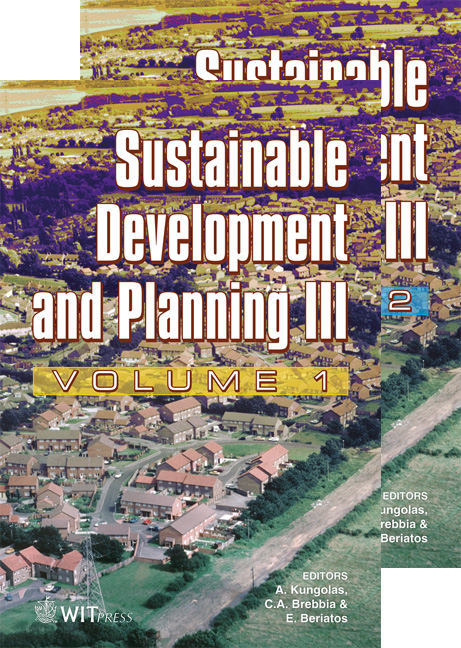Municipal Solid Waste Pre-treatment: A Comparison Between Two Dewatering Options
Price
Free (open access)
Transaction
Volume
102
Pages
7
Published
2007
Size
267 kb
Paper DOI
10.2495/SDP070902
Copyright
WIT Press
Author(s)
M. Ragazzi, E. C. Rada, V. Panaitescu & T. Apostol
Abstract
In the field of Municipal Solid Waste (MSW) management, dewatering before combustion is adopted in particular cases. The aim is the modification of the waste characteristics in order to increase its LHV and allow an easier removal of glass, metals and other inert material. The process is named bio-drying when it is based on biological aerobic reactions; no auxiliary fuel is needed thanks to the exothermic reactions that develop under aerobic conditions. About 2.5 million tMSW/y will be bio-dried in 2006 when all the bio-drying plants under construction will be completed. When the process is based on an external supply of heat (generally obtained from auxiliary fuel), the option is named thermal drying. This is well developed for sewage sludge but less for MSW. In Italy we can find a few experiences of thermal drying on the oversieve from MSW automatic sorting. In this case the aim is the decrease of humidity for the production of Refuse Derived Fuel (RDF) as, according to the Italian regulation, the highest value of humidity for RDF is 25%. A few proposals of thermal drying have been proposed as a pre-treatment before combustion in two Italian towns where an incinerator has been planned. In both cases the proposal is integrated with the combustor (in order to use a part of the heat of the off-gases) and the aim is the preparation of the waste to an easier inert, glass and metals removal (for material recycling and for decreasing the impact of the incineration). The present paper shows a comparison between bio-drying and thermal drying taking into account MSW characteristics, environmental aspects, energy balances and costs. An additional comparison concerns the role of selective collection of biodegradable fraction in order to decrease the humidity of the residual MSW. Keywords: bio-drying, dewatering, MSW, thermal drying.
Keywords
bio-drying, dewatering, MSW, thermal drying.





